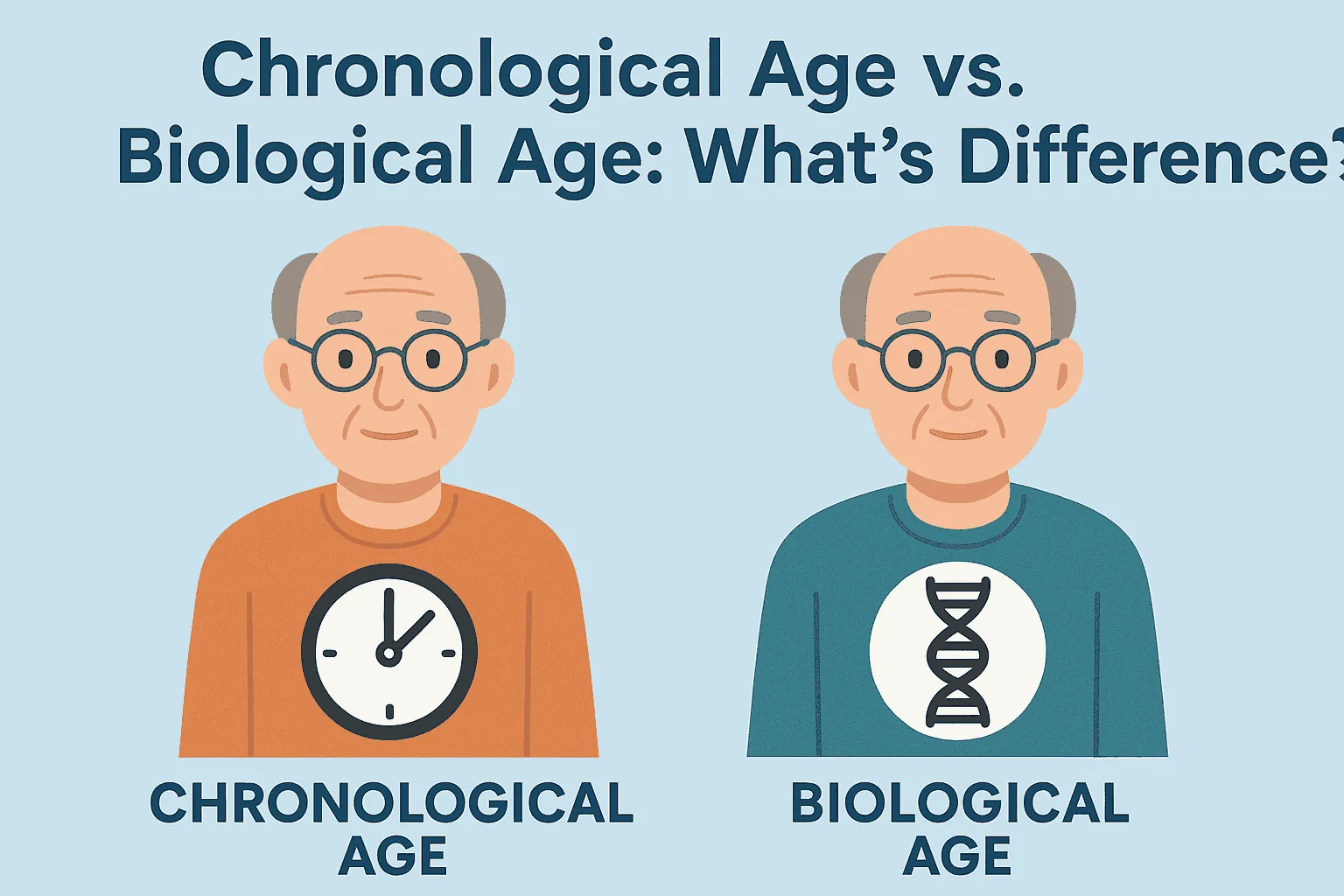Chronological Age vs. Biological Age: What’s the Difference?

Many of us think the actual age is how many birthdays we have had. But this is not the reality. A chronological age is the total number of years you have spent, and the biological age depends on your health, lifestyle, and habits. Read more to know the difference between chronological age and biological age.
What is Chronological Age?
Biological or physiological age is measured by how perfectly your body performs. It depends on various factors, such as lifestyle, habits, genetics, exercise, stress, rest, diet, nutrition, and medical history. For example, if a person is 45 years old and in good health, like a person in their late 20s or 30s, his biological age would be younger than his chronological age.
Chronological age = Your age in years.
What is Biological Age?
A biological age is also known as physiological age, which measures how perfectly your body is performing. It depends on various factors, such as lifestyle, habits, genetics, exercise, stress, rest, diet, nutrition, and medical history. For example, if a person is 45 years old and in good health, like a person in their late 20s or 30s, his biological age would be younger than his chronological age.
Biological age = How old your body acts based on health.
Difference Between Chronological Age vs Biological Age
| Aspect | Chronological Age | Biological Age |
|---|---|---|
| Based on | Birth Date | Physical Health |
| Affected By Lifestyle | No | Yes |
| Measured By | Forms and Calendar | Habits, Fitness, Health Tests |
| Changes | Increase With Time | Increase/decrease based on Lifestyle & Health |
Want to know your Chronological Age precisely?
Our calculator can help you determine your exact age in years, months, and days!
Can I Measure My Biological Age?
Of course, you can measure biological age by the combination of things given below:
- Bone density.
- DNA methylation tests.
- Muscle strength.
- Blood pressure.
- Insulin sensitivity
- Diabetic levels.
- Cholesterol levels.
- Inflammation markers.
Can I Lower My Biological Age?
- Balanced Diet: Eat a proper but balanced diet. Eat fruits, vegetables, and healthy fats.
- Sleep: Take a nap for at least 8 to 9 hours per night.
- Avoid Smoking: Don’t take alcohol. Also, avoid smoking.
- Regular Exercise: Do proper exercise, especially cardio and strength training. Go for a morning walk regularly.
- Stay social: Meet your friends and family to stay mentally and socially active.
